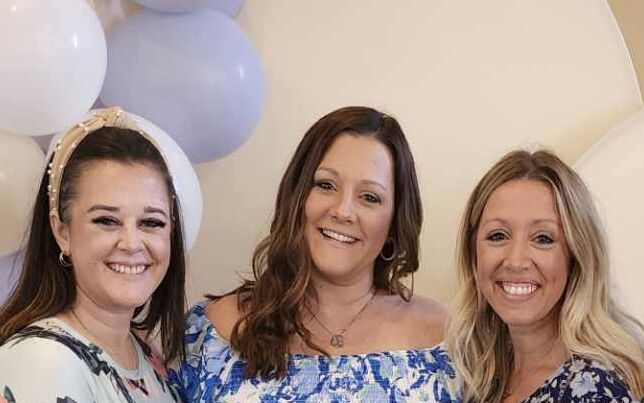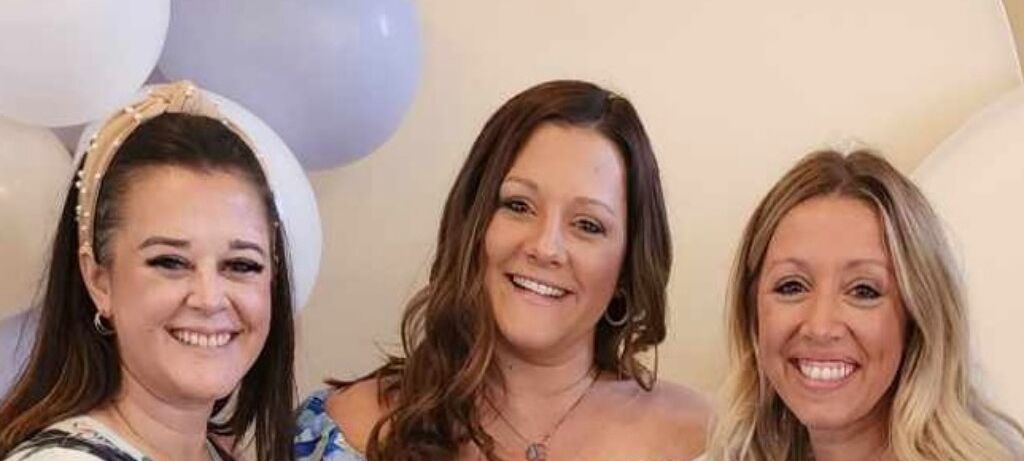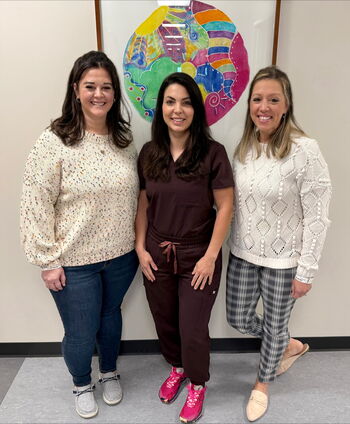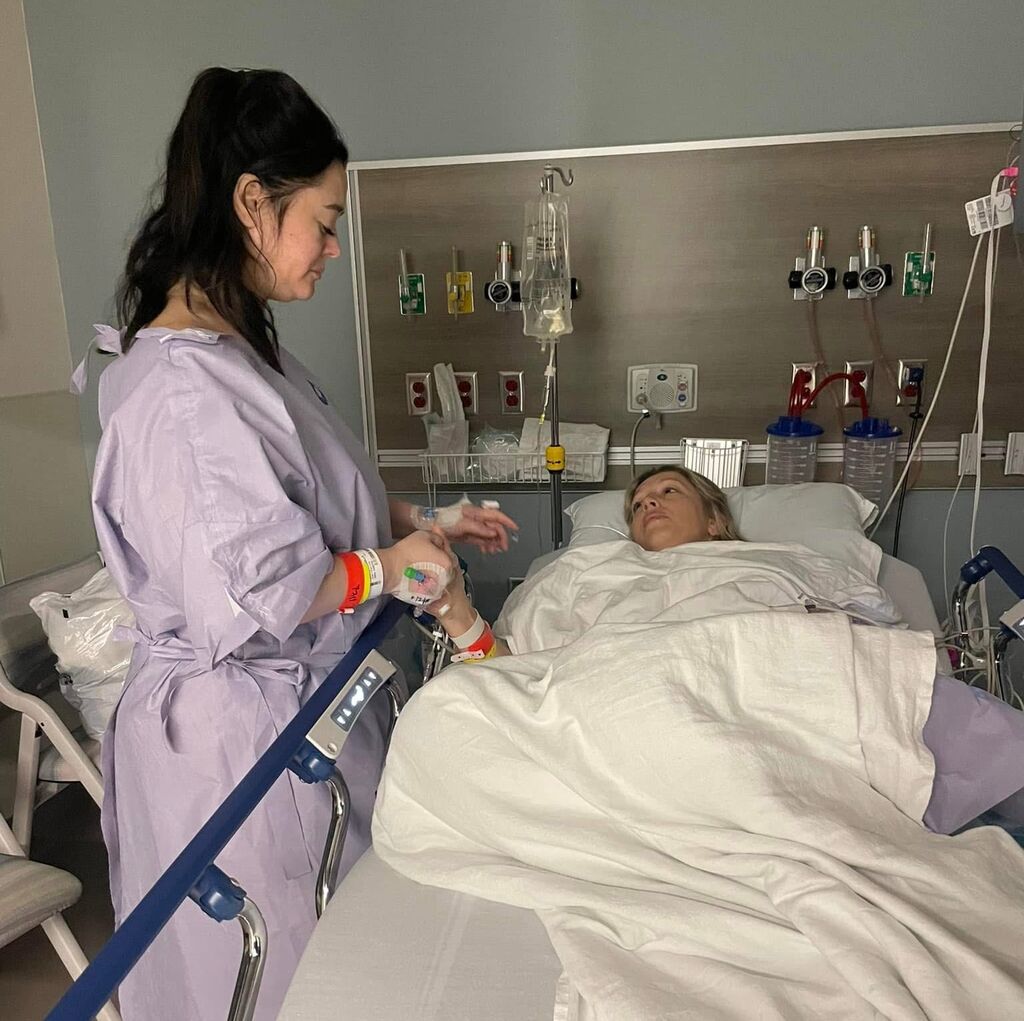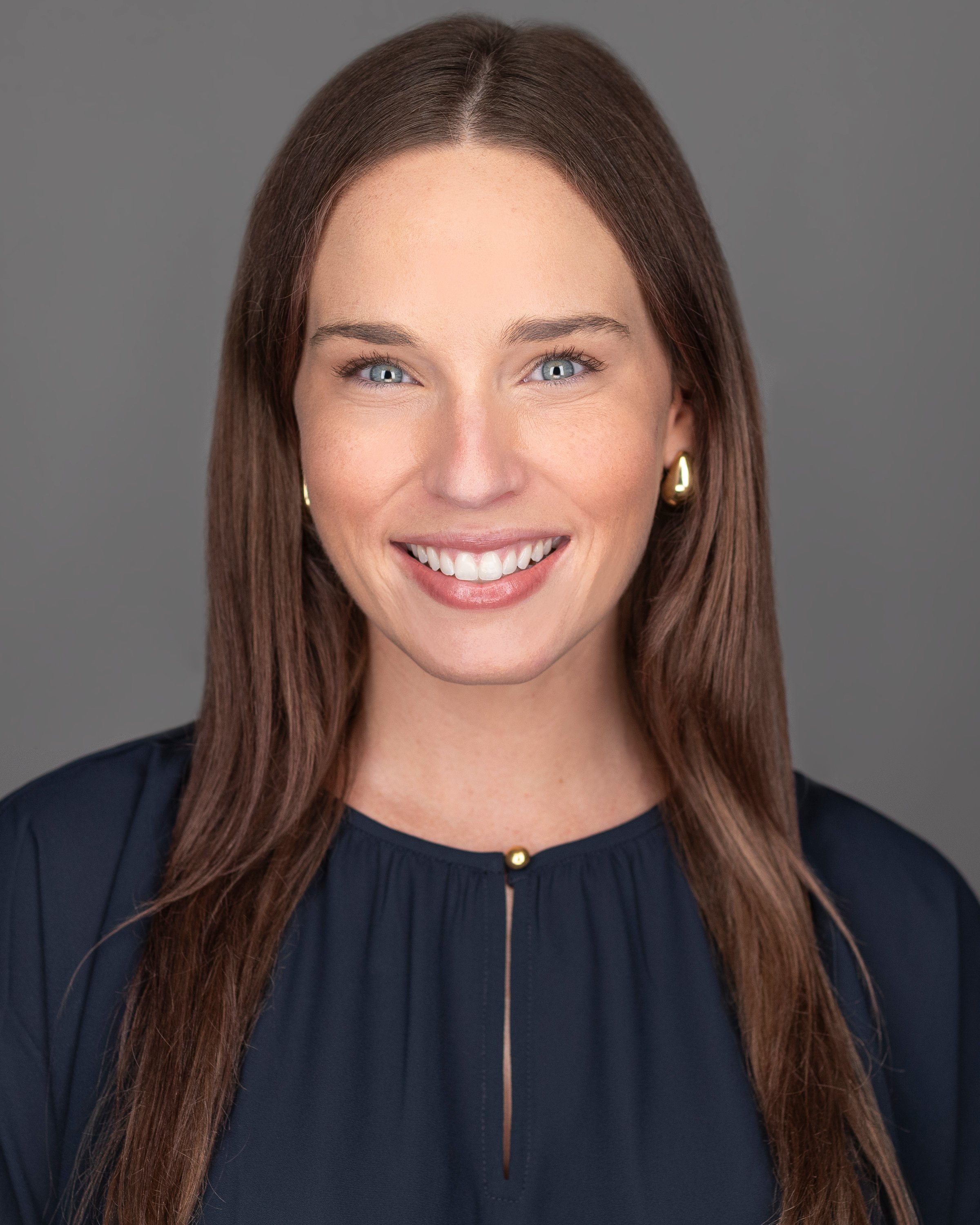Sisters Take Bold Step Together Against BRCA Mutation
As sisters, Leah Hathaway, Michelle Mann and Tiffany Despota share a lot of things: DNA, a childhood home, clothes. But the trio never expected to share an increased risk for cancer.
It all started when Leah followed a gut instinct to undergo testing for a BRCA mutation, despite having no family history of cancer.
“I had persistent irregular cycles and changes upon self-breast examinations,” she said. “I just had a strong sense that something else was going on.”
BRCA genes (BRCA1 and BRCA2) help regulate cell division within the body, preventing cells from growing uncontrollably. Mutations in the BRCA genes can cause abnormal cell growth, leading to a higher risk of developing certain types of cancers, including breast and ovarian cancers.
Genetic testing using a sample of someone’s blood, saliva or a swab of the inside of a cheek can be used to identify a BRCA gene mutation.
Following Leah’s positive result for BRCA2 at age 38, Michelle, 39, and Tiffany, 34, decided to get tested. It turns out all three sisters have the genetic mutation, a rare occurrence according to Monica Avila, MD, a gynecologic oncologist in the Gynecologic Oncology Department at Moffitt Cancer Center.
“Unfortunately, they are all positive for the gene, but it has been incredible to see them band together and help each other through this process,” Avila said.
Michelle (left) and Leah (right) say they fully trusted Monica Avila, MD (middle) and knew they were in good hands throughout this process.
According to a report from the American Cancer Society, 5% to 10% of female breast cancer cases are a result of mutations in the BRCA1 and BRCA2 genes. Women with these gene mutations have more than a 60% chance of developing breast cancer.
When it comes to ovarian cancer, research shows BRCA1 and BRCA2 mutations cause 15% to 60% of ovarian cancer cases. Women with a BRCA2 gene mutation specifically have up to a 30% chance of developing ovarian cancer.
Recommended preventative surgeries for women with a BRCA2 mutation include a bilateral mastectomy (removing both breasts), bilateral salpingo-oophorectomy (removing both ovaries and fallopian tubes) and potentially a hysterectomy by the age of 45.
For women with a BRCA gene mutation, a bilateral mastectomy procedure can lower the risk of breast cancer by around 90%. A hysterectomy combined with a bilateral salpingo-oophorectomy reduces the risk of developing ovarian cancer by over 90%.
“It can be a very scary experience because these are young reproductive-age women who don’t want their estrogen taken away,” Avila said.
“Facing the decision to undergo preventative surgery or not is incredibly daunting,” Michelle said. “It’s a decision that feels heavier because at 39, I’ve never been married or had children; however, the risk of cancer is too great to ignore. I know the decision I made wouldn’t be for everyone, but for me, it was about balancing the reality of my future life and health risks while also giving myself the best chance at a long life.”
Leah, already a mother of two daughters, shares Michelle's belief in the importance of maintaining good health to continue enjoying motherhood well into her later years. However, as a medical professional, she also had concerns about the long-term health implications of losing her ovaries.
Ultimately, Leah and Michelle decided they were ready to begin the process of undergoing preventative surgeries, while Tiffany, the youngest sister, is putting her surgeries on pause until after she has another baby. She had her first son this past August.
Michelle (left) comforted and checked on her sister Leah (right) following her surgery.
Leah and Michelle are now four weeks out from their hysterectomies and bilateral salpingo-oophorectomies, a milestone for Avila, who recalled that it was the first time she had performed a same-day surgery on sisters. Leah and Michelle's next step will be meeting with Moffitt’s breast specialists.
“It takes a lot of guts to say I am going to get this done and I am going to power through this,” Avila said. “It was great to see them take control of their own health, and they did it together, which I think is very powerful.”
Leah says this experience is a testament to being your own advocate regarding your health. “Stand up for yourself and trust the inner feelings that you may have,” she said.
Although the sisters still face a challenging road ahead, they’ll continue to share their strong bond of sisterhood. Fortunately, after exams and tests conducted throughout the latter half of 2024, the sisters have not received any pathology results indicating cancer.
“Obviously, no one wants to be going through this, but at least we have each other. I could cry thinking about how close I am with my sisters and how much I love them,” Tiffany said.


